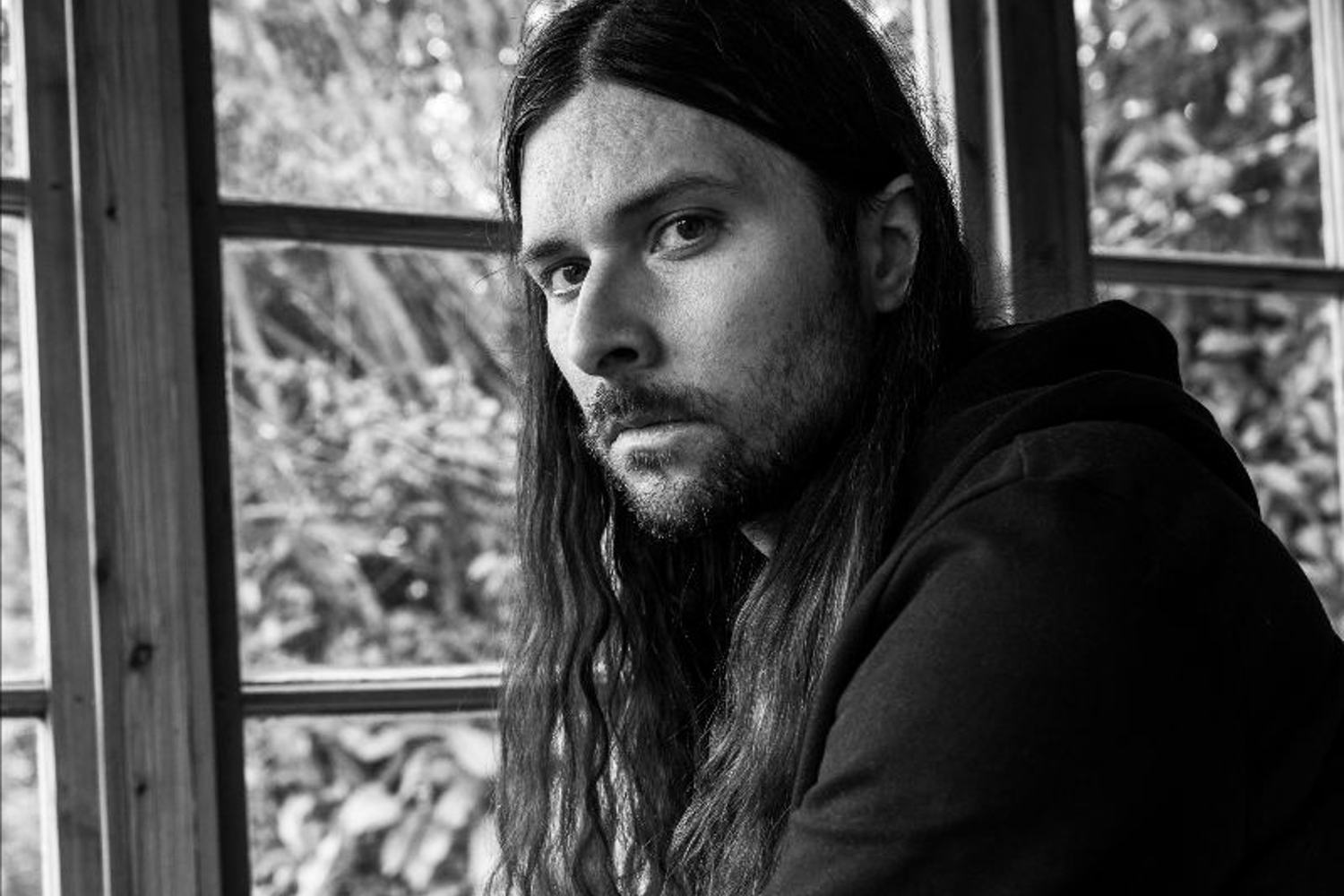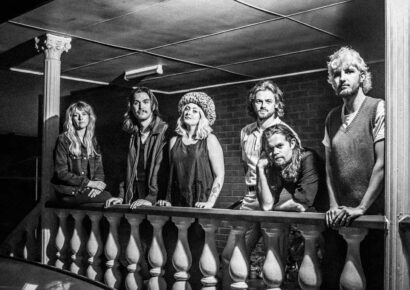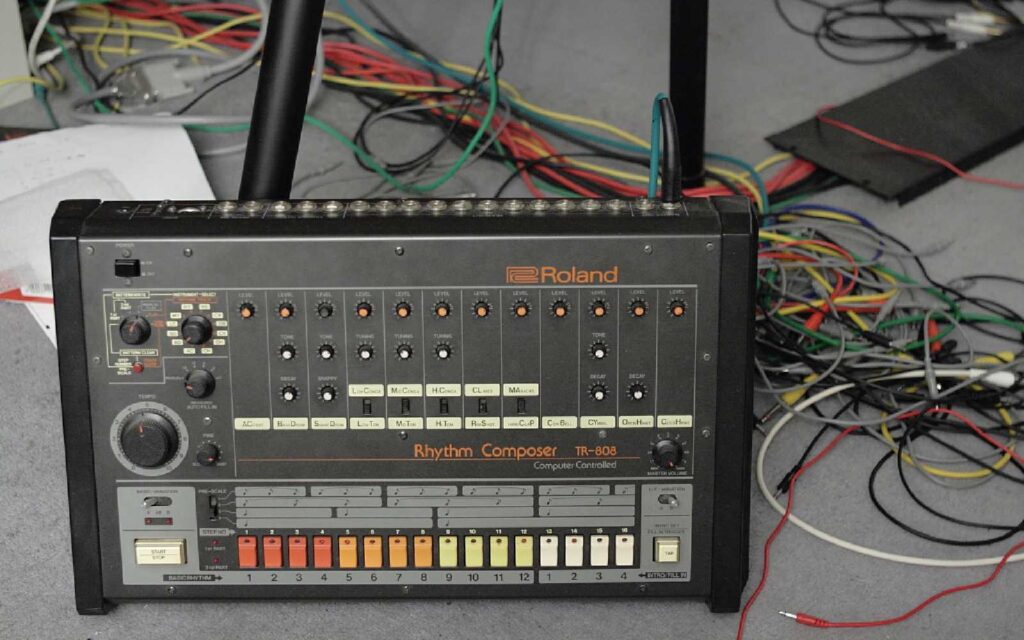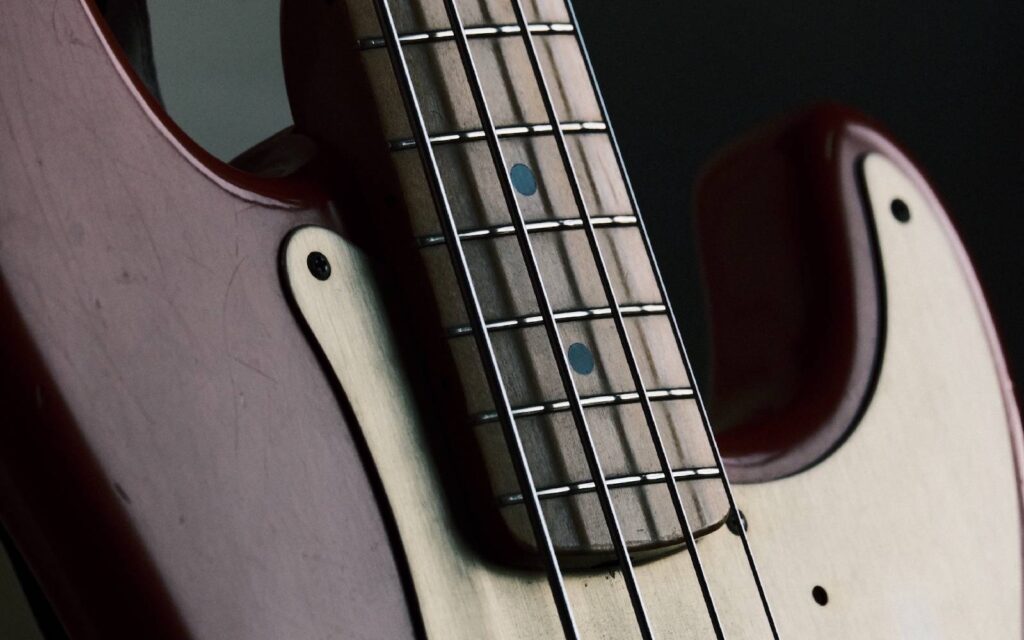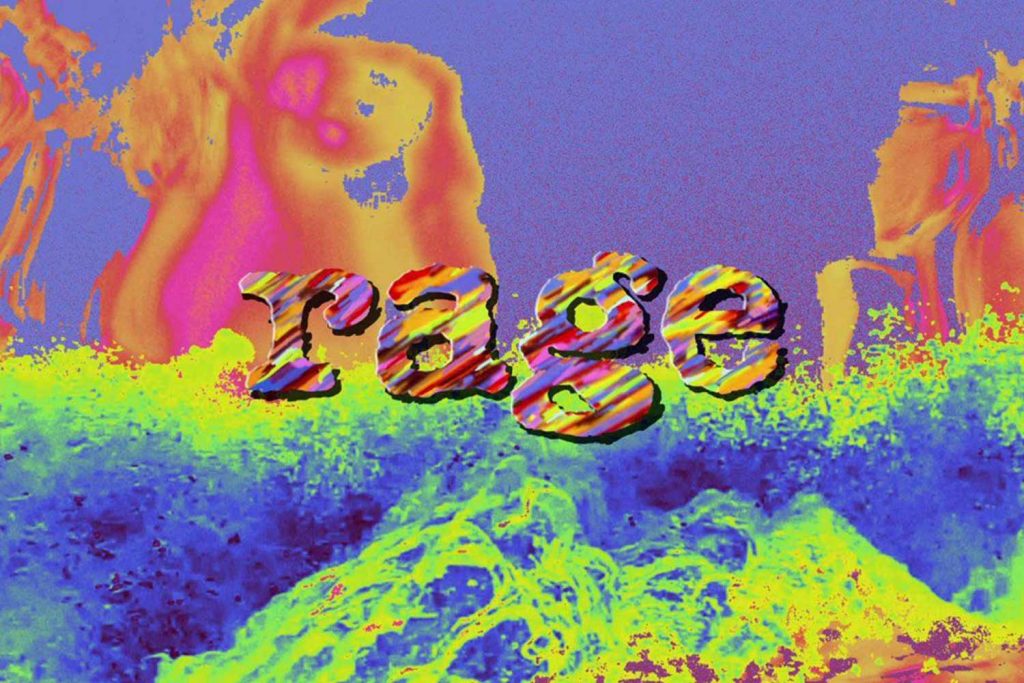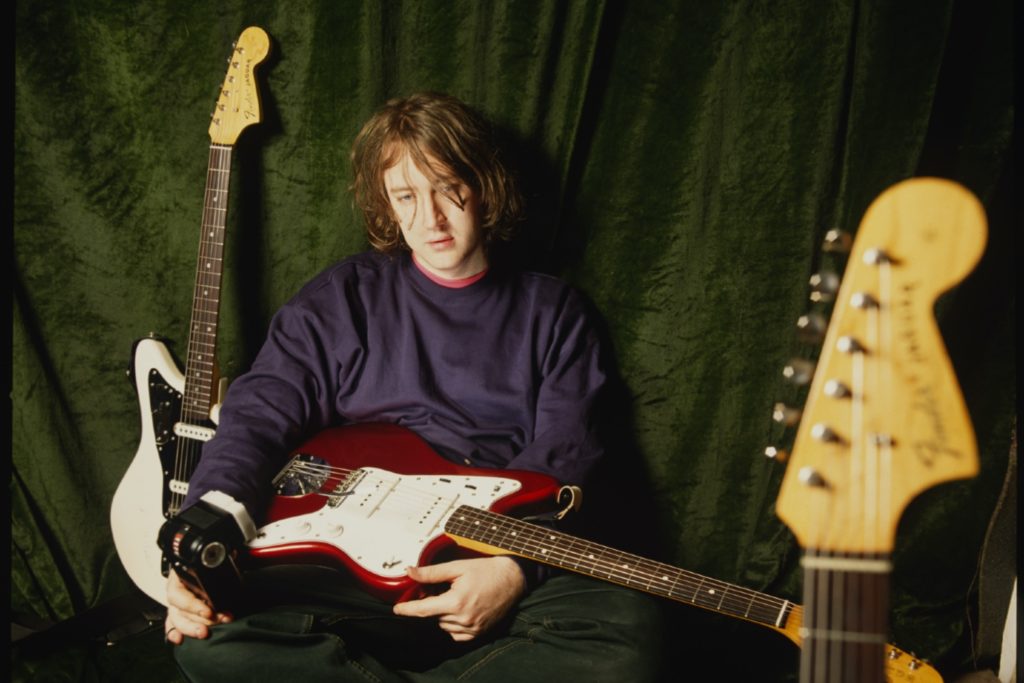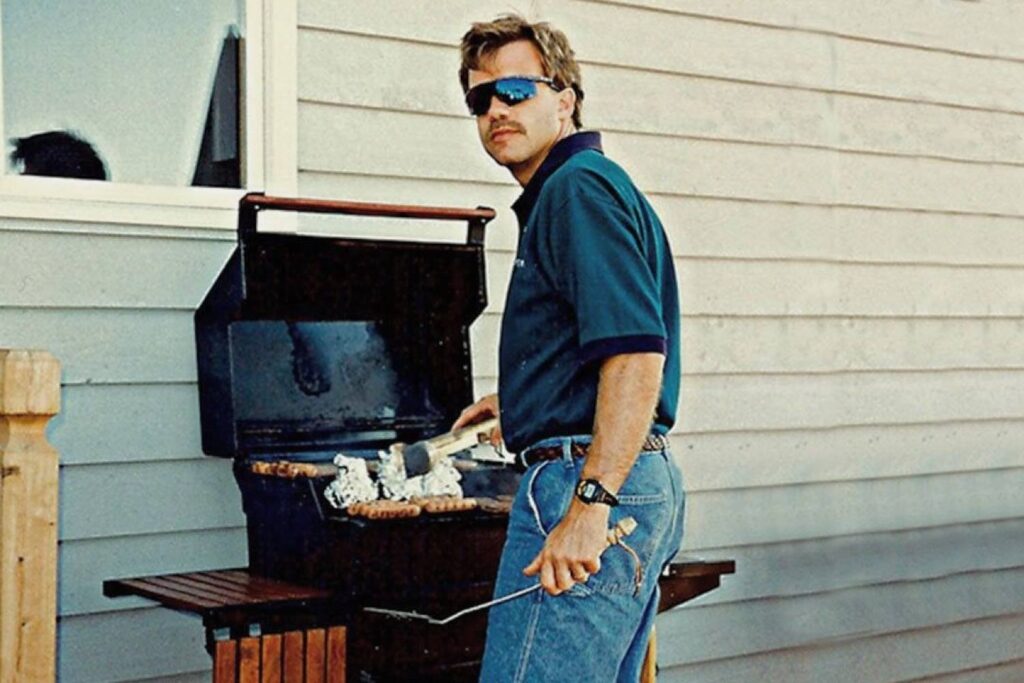Mitch Rowland's second single "Bluebells" follows "Come June", a taste of the forthcoming album Come June.
Mitch Rowland is a longtime songwriting collaborator and touring guitarist for the one and only Harry Styles. When not taking Love On Tour, he’s writing and arranging his own music, and his debut album Come June is out in October, with singles “Come June” and “Bluebells” out now.
We spoke to Mitch about the first single, “Come June”, his songwriting process and the equipment used to get from idea to completed song.
Read all the latest features, columns and more here.
How did “Come June” (the song) come about?
I kept hearing terrible things about the [Electro Harmonix] Mel9 guitar pedal, so I bought one. I can’t play piano so this was my way of pretending to and out came this little song.
How do you find writing while being a very busy, in-demand player of other people’s music?
With Harry [Styles], we tour a lot. I’m always playing guitar and coming up with stuff wherever we are, but I’m rarely finishing those ideas on the road. I work a lot better when there’s less going on, so more of my writing happens at home. And right now home is in the English countryside which is ideal.
How do you write, demo and record while being so busy?
I don’t try to do it all at once. Even though I could work anywhere while running Logic [Pro] from my laptop, I tend to wait ’til I’m home to demo something properly. I’ll sift through voice notes on my phone, then put together an arrangement in front of a microphone. Playing something that’s almost there with headphones on helps guide the decision making process somehow.
When the arrangement is there, I’ll track the acoustic first, maybe double it, then get a vocal over that. My workhorse microphone is a 1979 Neumann U87 previously owned by David Briggs. I like to think that Neil [Young] was in front of it at some point. It would make life easier, but I’m not bothered about learning how to edit well, so I go for full takes. It can be hard work at times, but it’s fun to get it right.
How does being a session musician live compare to being in the studio making a record?
I’m not really a proper session musician, but playing on stage and in the studio is almost one in the same to me. Obviously there’s going to be a bit more energy on stage, but leaving space up there rather than filling it up goes a long way. If I’m recording, I try to remind myself to play half of what I want to.
How does performing your own music live compare to the studio recordings? Are you conscious of too much production that is difficult to do live?
I’m still figuring that out on the live end, but we’re not using any click or backing track so that’s pretty freeing. It feels great to count off songs for a change. I’m not being overly precious about recreating every bit. With the four piece, we’re definitely not covering every sound, but it’s close and the set up feels good.
We split our time between LA and England, therefore our gear is split up too. The big difference right now is the album-making stuff is in LA and the touring stuff is in England. My good friend Brian Calhoun at Rockbridge Guitars has built me a bunch of great acoustics that I keep in England. Apart from that, I’m using whatever’s around. I bought a few low-wattage ‘50s and ‘60s Watkins (pre WEM) amps in England since they’re cheaper here. They really do the trick for me. In fact, I used them when opening up for Harry at Slane Castle and Wembley Stadium. They sounded so good, I left all my pedals at home which was a first.
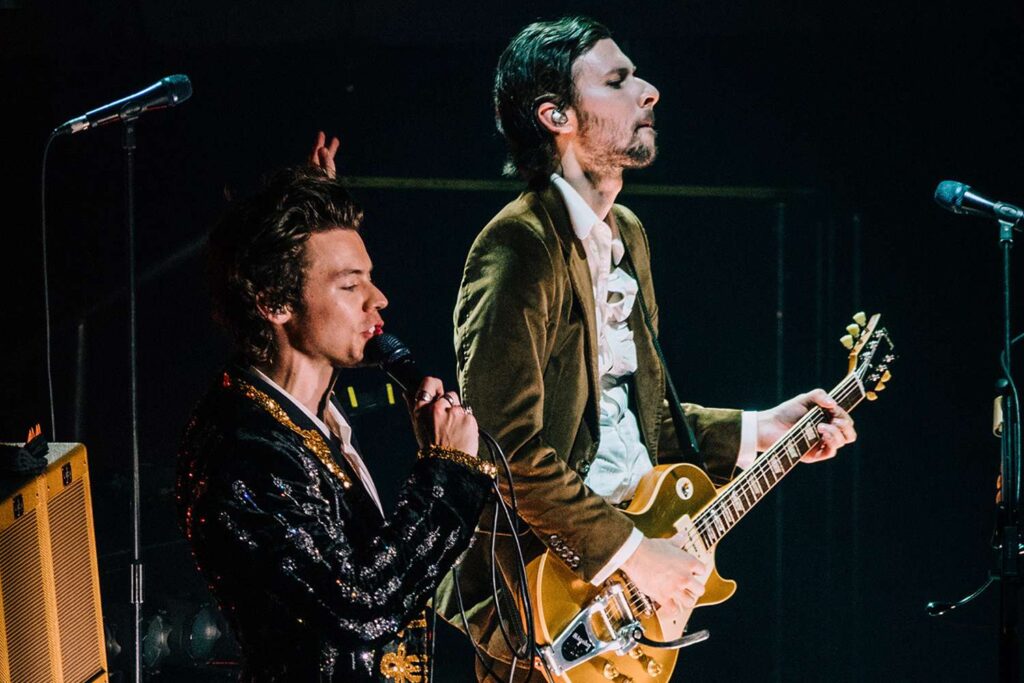
While making the record, a friend of mine in LA, Reuben Cox, built me one of his rubber-bridged parlor acoustics. That one’s being used at the top of the song “Come June”. I might not tour with stuff like that, but it’s a great tool to have around.
Are there any standout pieces of equipment that made “Come June” sound the way it does?
I guess at this point it’s turned into my trusty Martin HD28VS. A 2007 slot head, 12-fret D-28. It feels like sitting in a Lincoln Continental. Also, my first serious guitar. I have what I consider to be more exciting guitars, but this one always finds its way into my hands when I need to make it count. It’s also the only acoustic I used on Harry’s first record and it’s all over that too. I think I realised back in those days that down-tuned stuff on bigger bodied guitars is a sound that perks my ears up.
Then Rob Schnapf who produced the record introduced me to my new favourite electric, the Guild Aristocrat. A sort of rounder Les Paul shaped hollow body with no f-holes. His is from 1956 and midway through making the album, he found one for me from 1960. The ‘60 is nice and worn in. When mine showed up in the post, I continued to use Rob’s ‘56 since that was already working for me. The majority of the time, we were running electrics through an Ampeg Gemini I.
The MVP of the record was Rob’s 21” Istanbul Mel Lewis ride. I think that one comes with two rivets from the factory. It just worked in every situation, so we bought one to travel with.
It’s worth mentioning that Ben Harper used George Harrison’s Rickenbacker lap steel on “All the Way Back”.
How did you record “Come June”? Were tracks recorded isolated or was it a live band in a room sort of vibe?
Completely isolated and one thing at a time. Drums are my first instrument, so I’d track guitar first, then vocals and then drums before Matt Schuessler would record the bass. If the drum parts weren’t obvious to me, I wouldn’t force it.
Instead, I’d ask my wife, Sarah Jones, who is brilliant, to come in and relieve me. She plays in Harry’s band too. And she’s the reason Rob and I wound up together. Sarah met him while making Kurt Vile’s last record.
Thanks for your time Mitch! Any funny stories or anecdotes from the making of the album Come June?
I lost my voice for the first time as soon as I finished the vocals for “Come June”. It was also the final song we recorded. Rob was complimenting me on my voice that day and then it just went. Hopefully that’s not what happens on tour when I sing that song.
Keep up with Mitch here.
